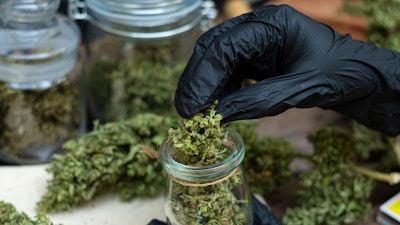
New York Governor Kathy Hochul today announced that in the past three weeks, more than 100 illicit storefronts across the state were shut down by the New York State Cannabis Enforcement Task Force. She said it's directly contributed to a 27 percent increase in legal cannabis sales in areas impacted by the Task Force’s enforcement activities.
In April, Governor Hochul unveiled new initiatives to shut down illicit cannabis operations and protect the legal marketplace as part of the FY25 Enacted Budget. The plan provides the Office of Cannabis Management (OCM) and local municipalities with new authority to act against illicit storefronts and those who enable them.
On May 21, Governor Hochul launched the Cannabis Enforcement Task Force. The Task Force, led by the State Police First Deputy Superintendent, is a statewide effort to coordinate staff from several agencies to combat the illicit cannabis market. The Task Force has worked with landlords to evict illegal dispensaries, and works to penalize landlords who fail to take steps to evict tenants after they are informed they are operating illegally.
Since May 21, when the Task Force was launched, 114 illegal cannabis stores have been padlocked. In addition, the OCM reports that $29,306,247 worth of illegal substances was seized from these stores and legal cannabis sales are up 27 percent since May for stores close to the padlocked locations.
OCM is committed to the Governor’s vision of an equitable cannabis market and reports that the Social and Economic Equity (SEE) program continues to promote inclusivity and opportunity within the industry. Currently, 54 percent of new applicants are SEE candidates. The breakdown includes 39 percent minority-owned business, 39 percent women-owned business, 9 percent service-disabled veteran-owned businesses, 8 percent distressed farmers, and 6 percent communities disproportionately impacted.
To date OCM has opened 135 legal dispensaries throughout the state.






















